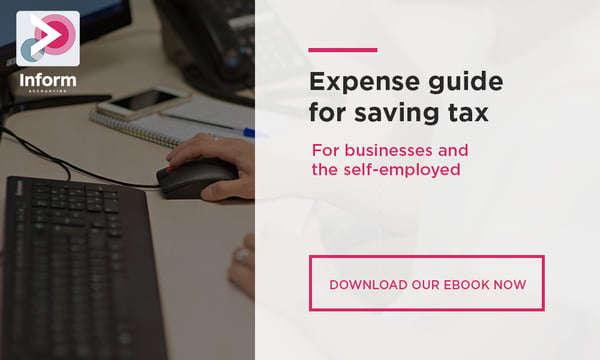BLOG NEWS UPDATES
Chancellor's Autumn Statement...
The Chancellor announced his Autumn Statement yesterday. We already knew that he was going to raise taxes and reverse most, if not all of the Truss Budget.
Indeed, the Chancellor set out his priorities as Stability, Growth and Public Services.
What this means is that we are back in Austerity 2.0 mode. Oh, and inflation is still going to be running at 10% across 2023.
This new fiscal direction isn’t good for small business owners. UK Plc needs repaying for all the money it gave or lent to businesses to support the economy during the Covid-19 pandemic. Yes, furlough payments, Bounce Back Loans and such like all need to be repaid.
Sadly, the chancellor has taken a swipe at small business owners and decided that this is the population that will take the brunt. After all, we small business owners don’t have a union supporting us to strike. Plus, we are a resilient bunch of people and will roll our sleeves up to get through these tough times.
The leaked and previously announced tax increases are still going ahead…
-
Corporation tax from April 1 2023 to increase to 25% for companies with profits over £250,000. Companies with profits under £50,000 will be taxed at 19%. Companies with profits between £50,000 and £250,000 will be taxed between 19% and 25%.
-
Still support for energy bills. After April 2023 the Energy Price Guarantee will go up to £3000 per year for a 'typical' household.
-
Income tax and National Insurance contributions thresholds are staying the same until April 2028.
-
The Upper rate tax band threshold will be lowered from £150,000 to £125,140 from 6th April 2023.
Remember that small business owners bared the brunt of the tax increases? Well here is the sting in the tail:
-
The National Living Wage will increase by 9.1% for individuals over 23 to £10.42 and the National Minimum Wage rates are all increasing by 9-10%.
-
The dividend allowance is being reduced from £2000 to £1000 in April 2023, then to £500 in April 2024.
-
The Capital Gains Tax Annual Exempt amount is being reduced from £12,300 to £6,000 from April 2023 and to £3000 from April 2024.
-
The National Insurance Secondary Threshold, i.e. the level at which employers start to pay Class 1 Secondary NICs for their employees, will be £9,100 from April 2023 until April 2028.
-
The R&D tax relief is changing from 130% to 86% and the SME credit rate will decrease from 14.5% to 10%. This takes effect from the Autumn Finance Bill 2022.
-
From April 1st 2023 business rates will be reevaluated to take account of a rise in property values since 2017.
Inevitably the Chancellor has decided that electric vehicles need to now pay road tax. This means that:
-
Electric cars and vans will now pay road tax from 2025.
-
New electric cars registered in 2025 will pay £10 in road tax for the first year then move to the standard rate.
-
Existing electric cars will pay the standard rate from 2025.
-
The exemption for electric cars for the expensive car supplement has also been removed. This means electric cars costing over £40,000 will pay an (at current rates) extra £355 per year on top of the normal road tax of £165 per year.
-
The benefit in kind tax for electric cars is going up to 5% by 2027/2028, with an increase of 1% per year taking effect in 2025/2026 until the 5% level is reached in 2027/2028.
Small crumbs of comfort here are that you still get the 100% first-year allowance for electric vehicle charging points.
Having read all of this you would be perfectly entitled to think that there is no good news for small business owners. And, well, you’d be right to think that. What the government did announce was:
-
No introduction of a possible Online Sales Tax.
-
The business rates multipliers will be frozen in 2023-24 at 49.9p and 51.2p.
-
There is a transitional relief scheme for business rates to support the changes in business rates from the reevaluation in 2023.
-
There, maybe, more energy price support for business announced in the Spring Budget.
-
The reversing of the increase in National Insurance rates for employees (that started in Nov 2022) is still going ahead.
-
There is still the £5000 National Insurance Allowance for small business owners.
What do you need to do now?
Given the extra costs the government has now imposed on your small business AND the rising cost of energy bills AND the minimum wage increases AND the 10% inflation rate across 2023, you have work to do. Namely:
-
Put together your business plan for 2023 and model the impact of rising costs. Do you need to:
-
-
Increase your prices?
-
Reduce your overheads?
-
Increase your wages?
-
-
-
Carefully look at your personal and business tax situation. For example:
-
-
Would you be personally better off if you paid yourself more via PAYE or made more pension contributions?
-
Would closing your limited company and trading as a sole trader now make more sense?
-
Do you need to put in motion anything to avoid getting caught by the reduction in capital gains allowance in April 2023, e.g. selling your business or property?
-
-
-
Who in your staff needs a pay rise to avoid falling foul of the rise in National Minimum Wage?
Of course, give us a call on 0121 667 3882 if you need help with any of these next steps. We are here to help.
Read more of Inform's tax blogs:




.jpg?width=1500&height=1000&name=amy-hirschi-K0c8ko3e6AA-unsplash-(5).jpg)

